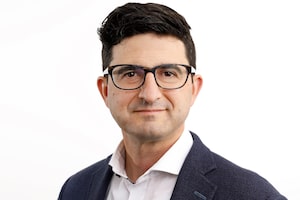A Toronto startup that has rapidly emerged as a critical technology supplier to global semiconductor makers has filed to go public on the London Stock Exchange, sporting a “unicorn”-sized valuation into the billions of dollars.
Alphawave IP Group PLC said Thursday it plans to list in the United Kingdom – home to a thriving semiconductor industry – selling up to US$500-million in new shares and holdings from existing investors. Fund giants BlackRock and Janus Henderson have agreed to buy another US$510-million of stock, valuing Alphawave at US$4.5-billion. That makes it the latest Canadian firm to become what’s known as a “unicorn,” tech startups that have reached US$1-billion valuations.
Barclays, J.P. Morgan Securities and BMO Capital Markets are underwriting the deal.
The four-year-old company develops “semiconductor intellectual property core,” or blocks of intellectual property (IP) it licenses to chip and electronic-equipment makers to embed into their semiconductor designs.
Alphawave’s specialty is building IP that enables chips to handle faster and more reliable data transmission while using less power. It’s a critical feature for chip makers as data communication surges globally, thanks to a proliferation of data centres, advanced 5G wireless infrastructure and connected automobiles.
The company is led by three entrepreneurs in their mid-40s who previously built and sold two semiconductor companies: CEO Tony Pialis and the heads of engineering and operations, respectively, Jonathan Rogers and Raj Mahadevan. Before the IPO, each owns 21 per cent of the firm. Alphawave incorporated in Toronto – where most of its 75 employees are based – but recently changed its corporate domicile to the UK, the birthplace of industry heavyweight ARM Ltd.
Executive chairman John Lotfon Holt, who has worked with the trio for years, is a veteran semiconductor entrepreneur and investor; chief financial officer Daniel Aharnoi was previously an investment banker with Barclays.
Alphawave has just 14 customers, but its revenue soared to $44.2-million last year from $9.3-million in 2019. Alphawave landed US$75-million worth of contracts in 2020, up from US$27.2-million the year before and $9.6-million in 2018 and 2017 combined. In this year’s first quarter, it booked another US$82.2-million.
Since founding the company, “our solutions have repeatedly established benchmarks in the industry in terms of performance, power consumption, size and flexibility, Mr. Pialis said in a statement. “We have achieved a lot in this time: we have some of the world’s leading semiconductor companies as our partners and customers, we have an exceptionally fast-growing revenue track record, and we are a highly profitable company.”
The company has been self-funded to date and required little capital. Alphawave boasts exceptionally high gross margins and operating margins, reaching 95 per cent-plus and 53.9 per cent in 2020, respectively. It has been profitable since 2018.
Mr. Holt said in a statement the company chose to go public in Britain because it is home to other companies with a similar silicon IP business model, including ARM and Imagination. “There is a long track record in the U.K. of investors who understand the value of licensing semiconductor IP,” he said.
Alphawave, which estimates the size of the market it now serves will triple to US$1.5-billion from US$500-million last year, acknowledges in its listing document it faces significant risks, including intense competition that could cut into the licensing and royalty fees that drive its business.
The company also relies on trade secrets, contracts, confidentiality agreements and licences to protect its proprietary technologies, as opposed to filing for patents. “However, the group cannot be certain that its trade secrets, know-how or other proprietary information will not become known or that its competitors will not independently develop their own” competing technology, or that it can avoid patent-infringement claims, it said.
The company’s long-term plans include expanding from producing licensable blocks of IP to making full integrated circuit blocks, known as “chiplets,” broadening its product offerings and winning more business from new and existing customers. Alphawave is also planning to build its R&D headquarters in Cambridge, U.K.
With the IPO, Alphawave is set to join a slew of Canadian early-stage companies that have become unicorns in recent months either through financings or takeovers, including, Hopper Inc., Wealthsimple Technologies Inc., Galvanize Inc., Verafin Inc., AbCellera Biologics Inc., Benevity Inc., Dapper Labs and Dragons’ Den Star Michele Romanow’s Clear Finance Technology Corp.
 Sean Silcoff
Sean Silcoff